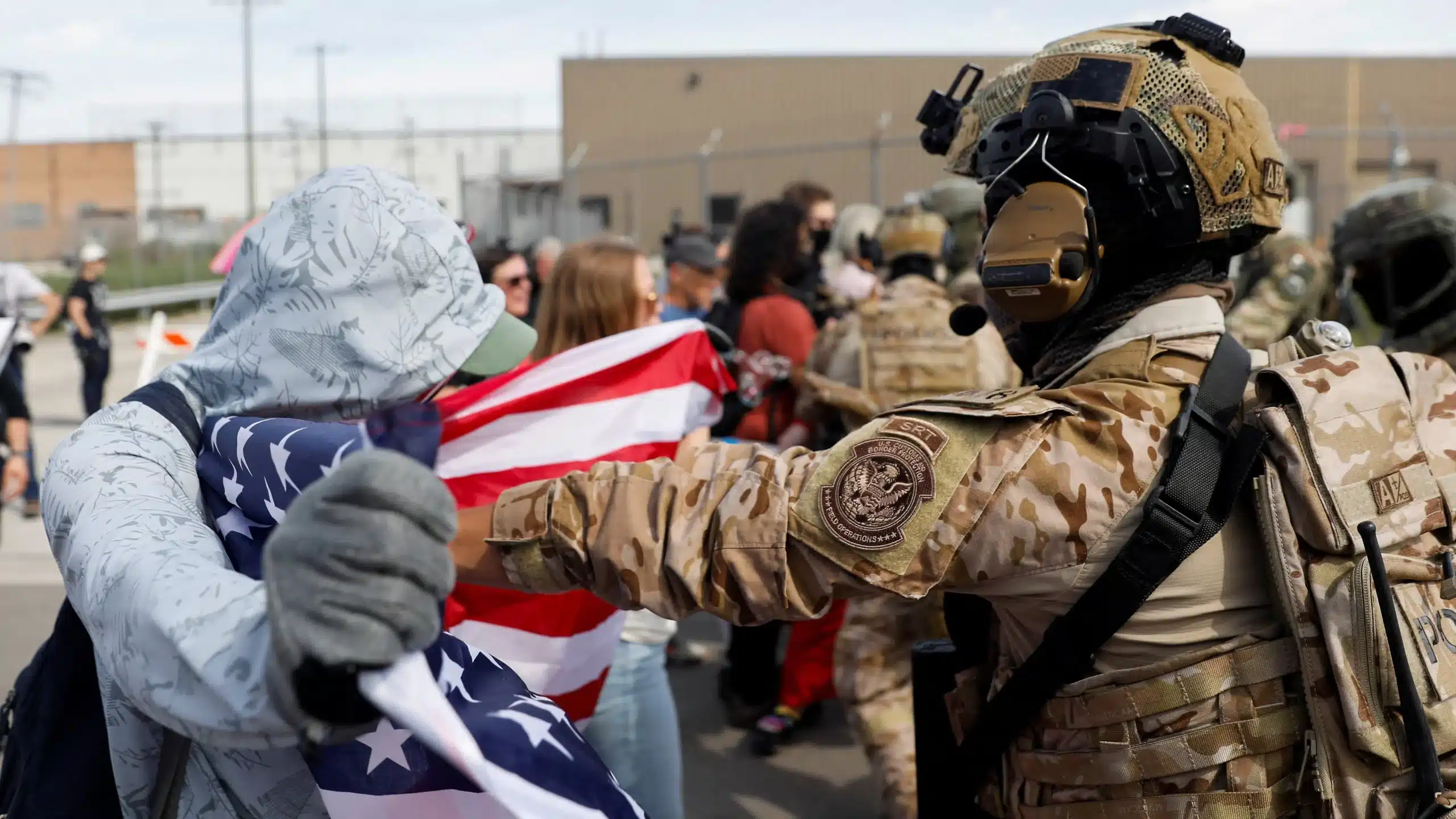South Korean Engineers Allege US Officers Held Them at Gunpoint, Share Harrowing Experience with BBC

When Youngjin glanced out of his office window in the United States, he was taken aback by the sight of armed officers and immigration enforcement agents. Initially, he felt secure, believing his short-term visa protected him. However, his sense of safety quickly evaporated as agents stormed in, handcuffed him, and transported him to a detention center. Youngjin is among over 300 South Korean workers caught in a significant immigration raid in Georgia, one of the largest during Donald Trump’s presidency. Many of those detained have since returned to South Korea, grappling with the trauma of their experience.
Details of the Immigration Raid
The immigration raid, which occurred earlier this month, targeted workers at a facility in Georgia where South Korean companies Hyundai and LG are constructing an electric car battery plant. Initially, U.S. officials claimed that the workers were in the country illegally due to visa issues. However, a deal was later reached that allowed the workers to leave voluntarily without facing penalties, enabling them to potentially return to work in the future. Most of the detained individuals were in the U.S. on temporary assignments, contributing to the construction of the plant as part of a broader initiative to encourage foreign investment in American manufacturing.
LG Electronics stated that many of its employees had valid visas or were part of a visa waiver program, expressing shock at the raid. Workers described a chaotic scene, with armed officials, helicopters, and drones creating an atmosphere of fear. One detainee, Chul-yong, recounted how he initially thought the officials were there to apprehend criminals. Instead, he found himself among those being arrested, despite attempting to clarify his legal status. The experience left many workers confused and terrified, as they were shackled and transported to a detention facility without understanding the reasons behind their detention.
Conditions in Detention
Youngjin, who had traveled to the U.S. to train staff on high-tech equipment, described the harrowing conditions he faced in detention. He was placed in a room with 60 to 70 other detainees, where he experienced panic attacks and extreme cold. For the first two days, detainees were not provided with blankets, forcing Youngjin to wrap himself in a towel to stay warm. He also reported that the water available to them had a foul smell, likening it to sewage, which further compounded their distress.
Chul-yong shared similar experiences, noting that he and others struggled to find places to rest, often resorting to sleeping on desks or any available surface. The uncertainty of their situation added to their anxiety, as many detainees were left in the dark about how long they would be held. It was only after some detainees were able to contact lawyers and consular officials that they learned their government was negotiating for their release. South Korea’s chief trade negotiator later indicated that the incident might have crossed a line, prompting an investigation into potential human rights violations by U.S. authorities.
Impact on Workers and Relations
The aftermath of the raid has left many workers traumatized and questioning their trust in the U.S. Youngjin, who returned home to South Korea, expressed feelings of emptiness and anxiety, struggling to reintegrate into his daily life. He described a moment of emotional release when he finally cried after being comforted by his mother’s cooking. Similarly, Chul-yong reflected on the emotional toll of the experience, noting that seeing himself in news reports was distressing for him and his family.
The incident has strained relations between the U.S. and South Korea, traditionally strong allies. It follows a recent trade agreement in which South Korean companies committed to investing $350 billion in the U.S. The U.S. Deputy Secretary of State has reportedly expressed regret over the incident, acknowledging the need for foreign specialists to train American workers. However, the raid has raised significant concerns about the treatment of foreign workers and the implications for future collaborations between the two nations.
As the workers process their experiences, many are left contemplating their future. Chul-yong mentioned that while some may choose not to return to the U.S., he feels compelled to continue his work, which he has dedicated his life to for three decades. The emotional scars from the raid will likely linger, influencing their decisions and perceptions of the U.S. for years to come.
Observer Voice is the one stop site for National, International news, Sports, Editor’s Choice, Art/culture contents, Quotes and much more. We also cover historical contents. Historical contents includes World History, Indian History, and what happened today. The website also covers Entertainment across the India and World.

